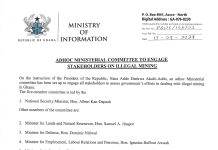As Russia invades Ukraine, Ghana’s President Nana Akufo-Addo has expressed concern about safety of citizens, evacuation of Ghanaians and the impact on oil prices.
Already, Western and European countries are beginning to feel the heat of this ongoing conflict as the price of brent crude oil crossed $100 per barrel-mark on Tuesday to hit a seven-year high after recording an average of $87 in January this year.
Though most of these countries are looking for alternative crude supply, Russia’s influence in the industry cannot be discounted. Concerns about a global economic blowback is rattling economies raising lot of concerns.
According to the Information Minister Kojo Oppong Nkrumah, President Akufo-Addo is concerned about the potential loss of lives and the safety of Ghanaians but he is also frustrated by the effect of the conflict on global crude oil prices and how it in turns affect Ghana’s economy.
“Although the Russian-Ukraine crisis is not happening on the African soil, the interconnectivity of the world economy and financial markets can trigger reactions in Ghana, and that has been the concern of the President,” he said.
Already, fuel prices at various pumps in the country are inching towards the GHS 8 mark causing transport fares to be increased by some 15% effective February 26, 2022. The crisis when escalated, could spawn supply chain bottlenecks which in effect would increase global oil and liquefied natural gas prices and its associated inflation pressures in several importing countries. This is likely to have a devastating impact on the transport sector.
Also, at a time when the world is dealing with rising energy prices and supply-demand imbalances in several metals and commodity markets, a steady supply of crude from Russia is crucial. This means that fuel prices in the country is contingent on the ongoing conflict and is likely to negatively impact Ghanaians, who for apparent reasons are already facing spikes in fuel prices. Not only would prices at the pumps rise, but an increase in price on oil and natural gas will drive up the cost of electricity.
If the situation continues or even worsens, the ripple effects could be more broad-based and have an impact on other commodity prices, trade, financial market and potentially monetary policy.
At the micro level, higher oil prices increase the cost of production especially for firms that uses fuel as an input and/or engages in transporting goods from one place to another. Also, an increase in oil price increases the household’s expenses on petroleum products leaving less to be spent on other goods. This in the long run negatively affects the individual’s income and standard of living thereof.
At the macro level, the higher production cost associated with rise in oil prices are often passed on to the final consumer by the supplier. This contributes significantly to the rate of increase in the general price level in the economy. Again, tension between the two countries can generate wide-ranging risk aversion which will affect funding and investment conditions.
Since global crude oil prices are significant drivers of inflation, economic growth and standard of living, the impact of the conflict will be dare should tensions not deescalate anytime soon.
Meanwhile, the Foreign Ministry has cautioned students and other Ghanaians in Ukraine to seek help at government places of shelter. This the Ministry said is to ensure their safety temporarily as government “engages the authorities, our relevant diplomatic missions and our honorary consul on further measures.”
Source: MOI (PR Unit)

























